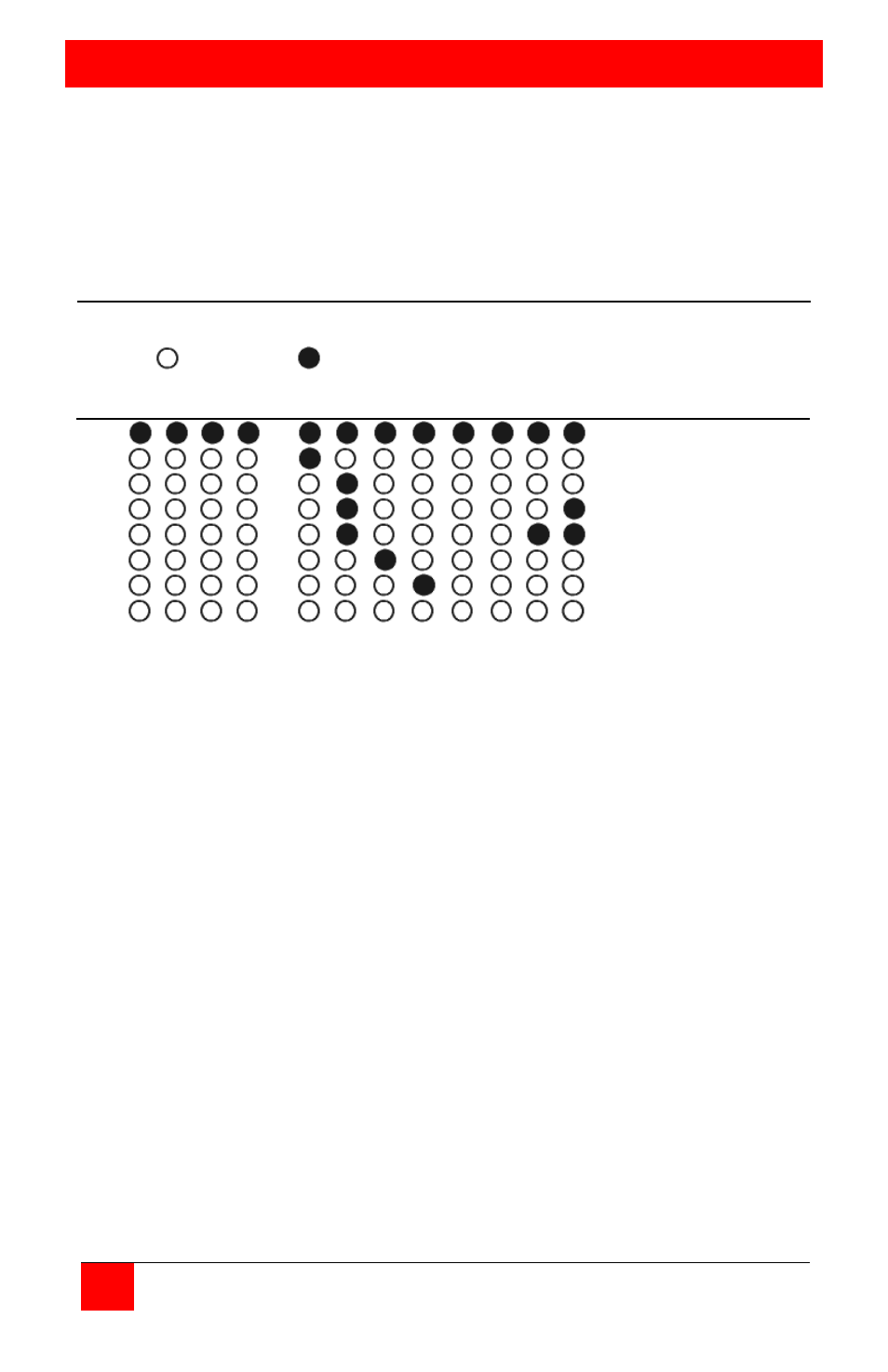Power up tests – Rose Electronics Porter User Manual
Page 18

Power Up Tests
14
PORTER INSTALLATION AND OPERATIONS MANUAL
Power Up Initial Display
Push in the power switch to turn the unit on. Porter goes through a power up self-test
which checks the main functions of its electronics. The leftmost LED labeled POWER
should glow green and the other red LEDs should all turn on. Then the unit will cycle
through four tests lighting up LEDs 1 through 4 as each test is performed. Errors are
indicated by the ERROR LED lighting and the unit halting. See TABLE II for the full
sequence of the power up LED display and TABLE III for error displays.
Table II LED Power up Display
Legend: M=Mode LED D=Data LED B=Busy LED E=Error LED
= LED off
= LED on
M D B E
1
2
3
4
5
6 7
8
1st
All LEDS on
2nd
Test 1: EPROM checked
3rd
Test 2: 16K RAM buffer
Test 2: 64k RAM buffer
Test 2: 256k RAM buffer
4th
Test 3: Static ram
5th
Test 4: Non-Volatile ram
6th
Unit ready
Program Checksum Test
This test verifies that the unit’s internal program is valid by performing a checksum test.
If a fault exists, a program checksum error shows on the LEDs as error 1, as shown in
TABLE III. The unit will immediately halt. This error requires that the unit be serviced.
Buffer Memory Sizing And Read/Write Test
In this test, the Porter automatically determines the amount of butter memory present
and indicates the amount via the status LEDs as shown in TABLE III. The buffer memory
is then tested to ensure that the memory system is operational. Any failure will cause the
error 2 condition to be displayed, as shown in TABLE II, indicating that a buffer memory
data error has occurred. The unit will not continue its further tests and will halt. An error
indicates that the unit requires servicing.
Static Ram Read/Write Test
The next test is for static ram. Since the Porter has no static ram, this test is displayed as
shown in TABLE II for consistency with other Rose products.
Non-volatile Ram Tests
The fourth and final power-up test is for the non-volatile memory. A series of tests are
performed. An error shown by the LEDs as error 4 indicates that the data in the non-
volatile memory has been corrupted. To attempt to rewrite the default parameters push
the SELECT switch then the ADVANCE switch. If the error condition goes out, the unit
may be powered up again to see if it halts at error 4 again. If it still displays error 4, a fatal
error has occurred and servicing is required. If the unit displays an error 45, the default
parameters were not written correctly. This is a fatal error and servicing is required.
If the unit recovers from the error the configuration parameters have been returned to
their default settings and the unit must be configured again if these default settings are
unacceptable. This condition should not normally occur.
